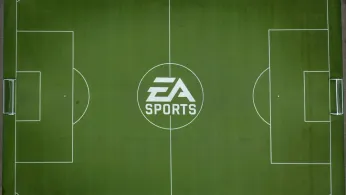
4 hours ago
How Electronic Arts' $55 Billion Go-Private Deal Could Impact the Video Game Industry
Wyatte Grantham-Philips READ TIME: 5 MIN.
In what could become the largest-ever buyout funded by private equity, video game maker Electronic Arts has agreed to be acquired in a deal valued at $55 billion.
Beyond the potentially record-breaking price tag, the deal could bring wider shifts in the gaming world. Electronic Arts (EA) owns popular titles like Madden NFL, Battlefield and The Sims — and going private could potentially grant the company more freedom in developing and distributing future games. Still, what its future under new ownership could look like has yet to be seen.
The proposed buyout also marks the latest move from Saudi Arabia’s sovereign wealth fund PIF to invest in gaming. If the transaction gets the green light, PIF would join Silver Lake Partners and Affinity Partners, run by U.S. President Donald Trump’s son-in-law Jared Kushner, as EA’s new owners. The companies aim to close the all-cash acquisition by the first quarter of 2027.
Here's what we know.
Why is EA an attractive takeover target?
The size of the video game market has attracted significant investment from large investors in recent years. And analysts note that Redwood City, California-based EA brand and lineup of titles make it a popular acquisition target.
The proposed acquisition also arrives as competition grows. One of EA’s biggest rivals, Activision Blizzard, was snapped up by technology powerhouse Microsoft for nearly $69 billion in 2023, for example, while the competition from mobile video game makers such as Epic Games has intensified.
PIF, Silver Lake and Affinity's combined offer to acquire EA far exceeds the $32 billion price tag to take Texas utility TXU private in 2007, which had previously shattered records for leveraged buyouts. A leveraged buyout means a company is purchased largely using borrowed funds, and requires the acquired company to repay the debt taken on to finance the deal.
Could going private give EA more business advantages?
It's possible that the deal could give EA more freedom in future development and distribution of its games.
By going private, EA will be able to retool operations without worrying about shareholder interest or other market scrutiny. As a result, EA could get “a little bit more breathing room to do what they do," explains Joost van Dreunen, a longtime games industry researcher and adjunct assistant professor at New York University’s Stern School of Business.
Theoretically, that could “result in more or better games,” adds Ben Schneider, a professor of practice in the Interactive Media and Game Development program at Worcester Polytechnic Institute. But at the same time, he notes, “gamers are generally not enthralled with corporate owners influencing how game makers make their games, to say the least.”
EA has recently faced criticism for moves toward live-service gaming — which features a continuous stream of new content often aimed to keep players online longer — and other monetization efforts that have been seen as aggressive among some gamers.
Experts like van Dreunen, who is also CEO of market research firm Aldora, say a hope is that the extra capital from privatization might allow EA "to take this foot off the gas from aggressive microtransaction strategies.”
Still, time will tell. EA's proposed buyers haven’t indicated any plans to part from those models. In Monday’s announcement, company executives just pointed broadly to coming growth.
“Looking ahead, we will continue to push the boundaries of entertainment, sports, and technology, unlocking new opportunities," Andrew Wilson, CEO of EA, who will continue to stay in the top seat if the go-private deal goes through.
Meanwhile, some analysts are skeptical about whether a buyout is the best thing for EA right now — particularly ahead of its “Battlefield 6” launch slated for October 10.
“It is still unclear to us why EA would agree to be acquired right before a very promising BF6 launch,” TD Cowen analysts Doug Creutz and Mei Lun Quach wrote in a Monday note. The analysts had previously pointed to the positive responses “Battlefield 6" received from players in its testing period — noting that expected revenue could push up EA's share price even further.
Others have similarly argued that the proposed acquisition price — which divvies up to $210 per share — undervalues what EA has to offer. But Nick McKay of Freedom Capital Markets thinks an increase in share price is likely limited, given the success of EA's sports offerings being baked into the price, and that the pricing makes sense.
Is a takeover expected to shut down more game studios and lead to layoffs?
After being taken private, formerly public companies often undergo extensive cost-cutting.
EA hasn't indicated any expected cuts spanning from its proposed buyout at this time, although the company has gone through several layoff rounds recently. After jettisoning about 5% of its workforce in 2024, EA ended March with 14,500 employees and then laid off several hundred people in May.
Experts like Schneider also point to the sizeable debt financing the deal takes on: amounting to about $20 billion per Monday's announcement. He notes that's concerning news for video game developers, as it could result in more cuts.
“These changes in ownership are a very far distance from the people and studios who actually make games," Schneider said. "Any direct impact will come in the form of what budgets are given to those studios and, downstream, which projects get cancelled or greenlit.”
EA has also already shuttered many game studios over the years. Just this past May, the company reportedly canceled the development of a video game based on Marvel’s “ Black Panther," for example, as part of the closure of Cliffhanger Games.
Saudi’s PIF fund has many hands in the video game industry now. Why?
Among EA's proposed buyers is Saudi Arabia’s sovereign wealth fund PIF — which has increasingly upped its gaming investments. It already holds a 9.9% stake in EA, and is also a minority investor in fellow gaming giant Nintendo.
Van Dreunen explains that gaming in popular with younger audiences and the majority of people living in the country are under 30 years old (accounting for 63% of the population as of the kingdom's 2022 census). That helps drive demand in a tech-forward industry that can also be “easily transported into a new location,” he adds.
Amanda Cote, an associate professor and director of the serious games certificate at Michigan State University, notes that the attempted EA acquisition is particularly in line with PIF's recent moves in esports, with competitive gaming platforms like ESL FACEIT also among its portfolio today.
“EA’s game portfolio simultaneously aligns with Saudi Arabia’s expansions into sports, gaming, and esports,” Cote said, alluding to EA's esports and sports properties like Madden Football and EA Sports FC (formerly FIFA).
At the same time, she also noted human rights organizations, such as Amnesty International, have been highly critical of Saudi Arabia’s overall investments in sports and esports — with some accusing the nation of “sportswashing” to distract international attention. “This proposed deal is likely to face similar criticism,” Cote added.
Among the other notable names in the proposed buyout is Kushner.
The deal still needs shareholder and regulatory approval. Experts like van Dreunen expect there might be some regulatory pushback — perhaps not in the U.S., but from other consumer watchdogs globally.
Still, Baird Equity Research analysts noted Monday that the “connections to both the Saudi government and the Trump administration” may be “a strategic asset for EA in navigating any regulatory speed-bumps.”






